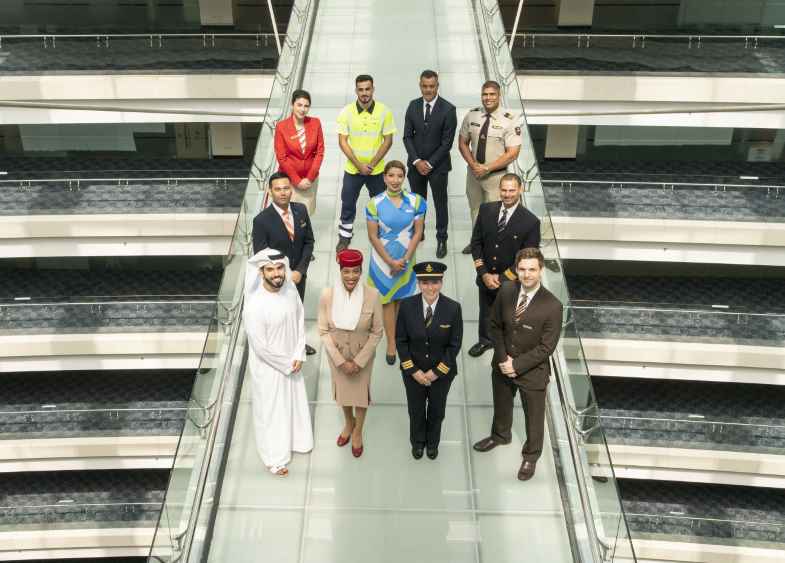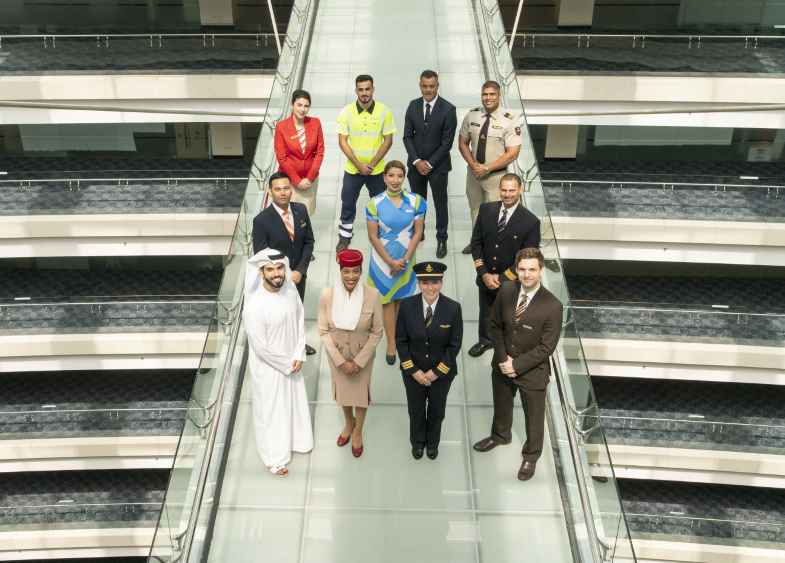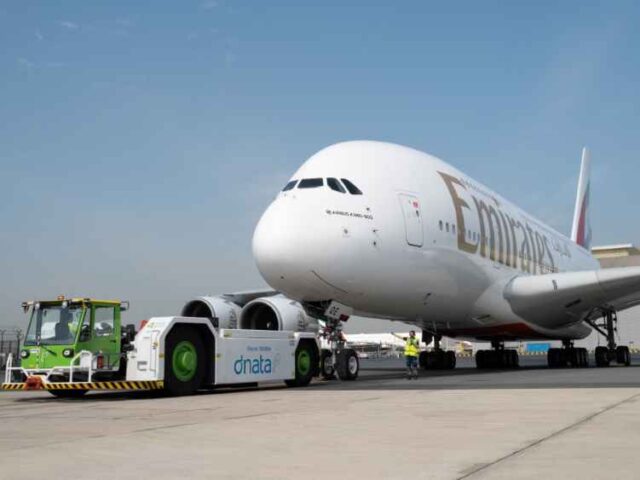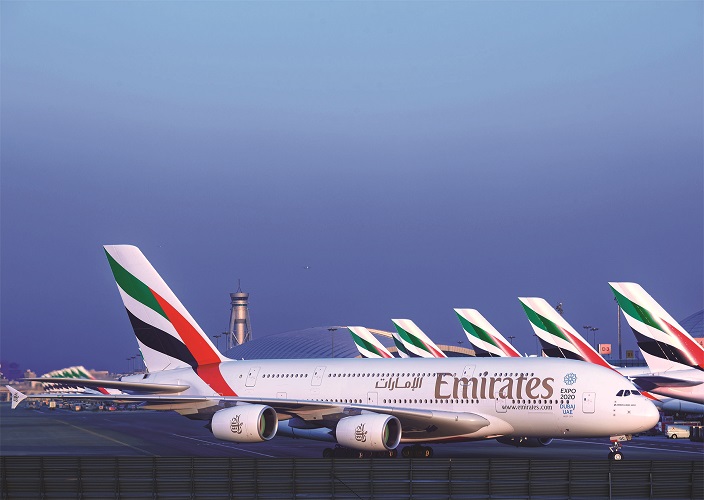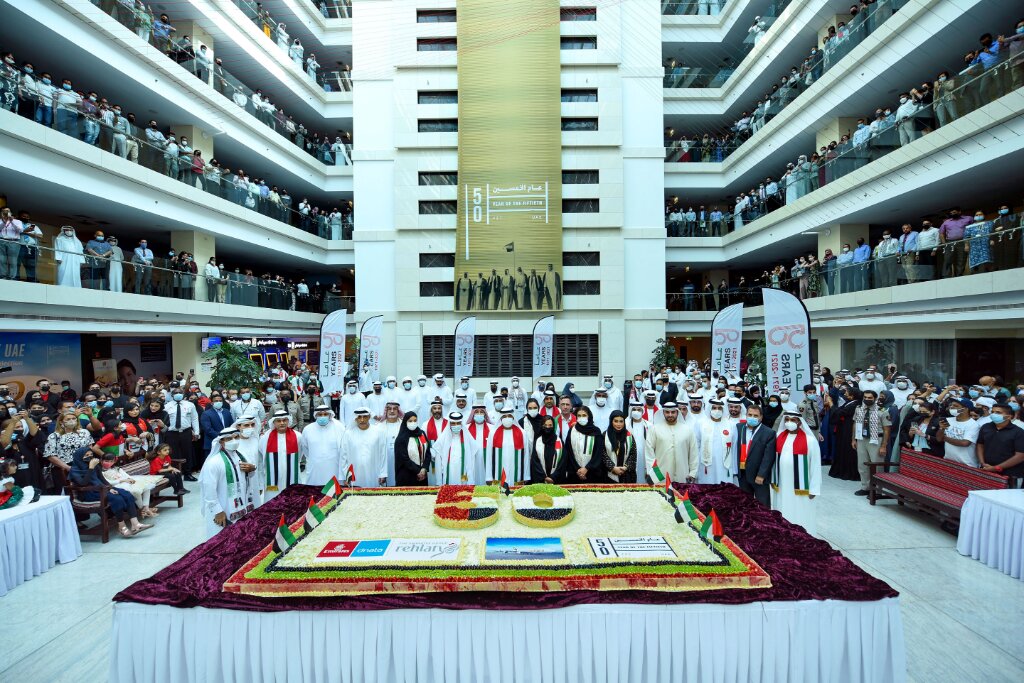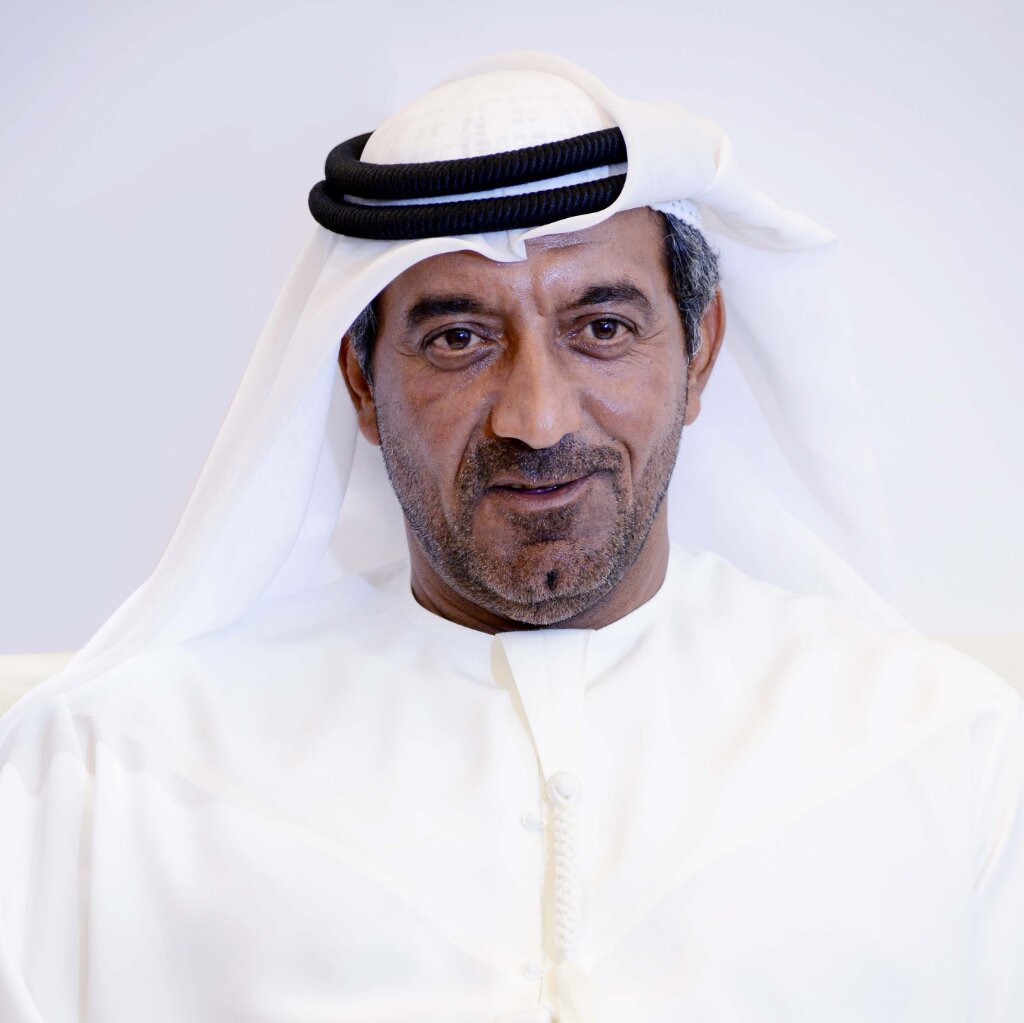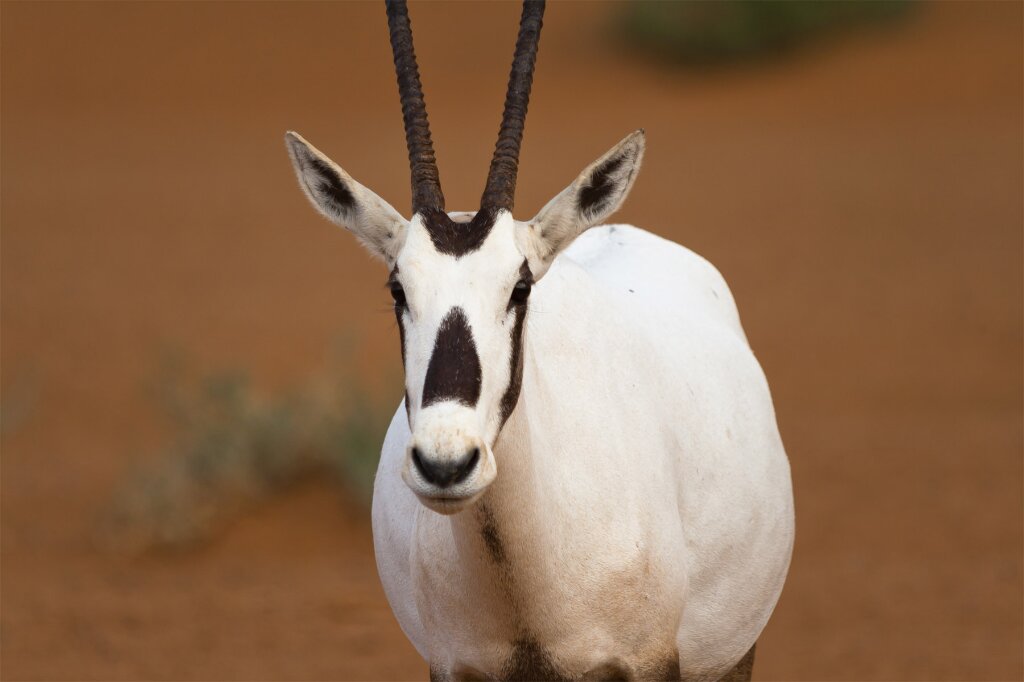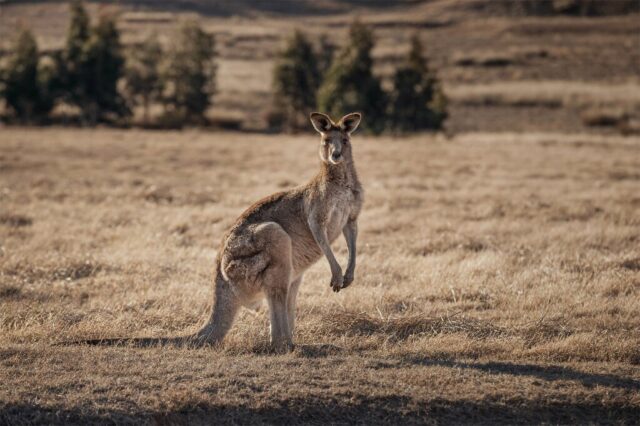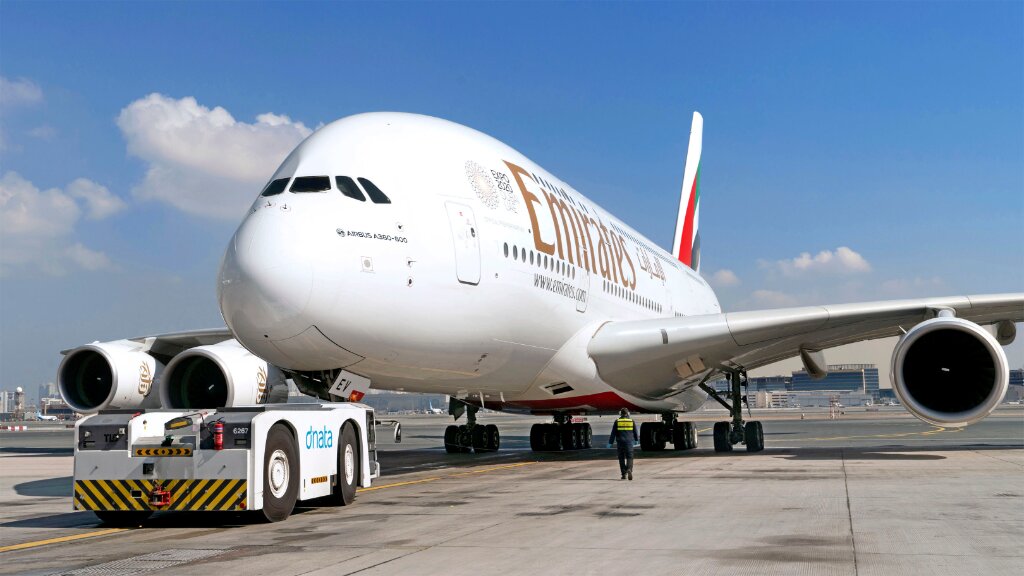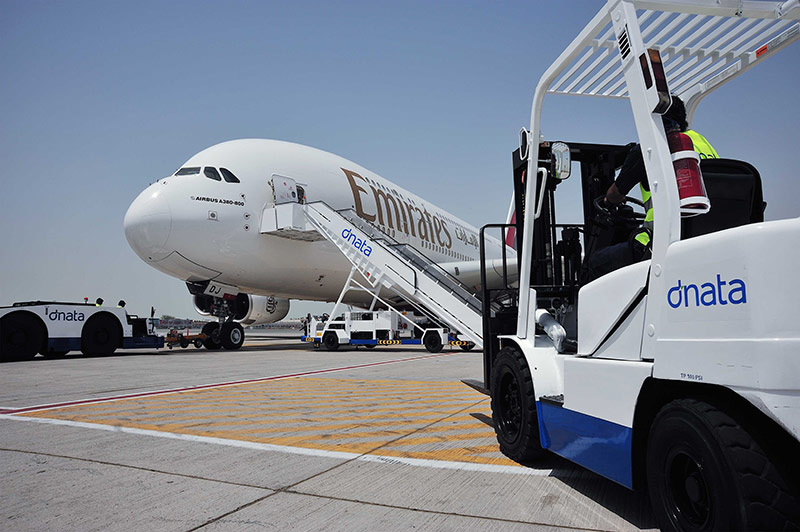Group records annual loss of AED 3.8 billion (US$ 1.0 billion) due to the ongoing COVID-19 pandemic impact, a significant improvement from last year with dnata returning to profitability
- Group revenue of AED 66.2 billion (US$ 18.1 billion) increased by 86% with strong customer demand as worldwide travel restrictions ease
- Ends year with an improved and strong cash balance of AED 25.8 billion (US$ 7.0 billion)
Emirates reports a significantly reduced loss of AED 3.9 billion (US$ 1.1 billion) compared with AED 20.3 billion (US$ 5.5 billion) loss in the previous year
- Revenue up 91% to AED 59.2 billion (US$ 16.1 billion), as airline expanded global capacity and reinstated more passenger flights
- Airline capacity increased by 47% to 36.4 billion ATKMs, with final five A380 aircraft added to its fleet
dnata reports a profit of AED 110 million (US$ 30 million), a solid turnaround from its AED 1.8 billion (US$ 496 million) loss in the previous year
- Revenue increased by 54% to AED 8.6 billion (US$ 2.3 billion), reflecting recovery from the pandemic across all business divisions in the UAE and worldwide
- Expands global footprint with the takeover of easyJet’s global onboard retail services and the opening of new cargo, airport hospitality and retail facilities
DUBAI, UAE, 13 May 2022 – The Emirates Group today released its 2021-22 Annual Report which shows strong recovery across its businesses. dnata returns to profitability, and significant revenue improvements were reported across both Emirates and dnata as the Group rebuilt its air transport and travel-related operations which were previously cut-back or curtailed by the COVID-19 pandemic.
For the financial year ended 31 March 2022, the Emirates Group posted a loss of AED 3.8 billion (US$ 1.0 billion) compared with an AED 22.1 billion (US$ 6.0 billion) loss for last year. The Group’s revenue was AED 66.2 billion (US$ 18.1 billion), an increase of 86% over last year’s results. The Group’s cash balance was AED 25.8 billion (US$ 7.0 billion), up 30% from last year mainly due to strong demand across its core business divisions and markets, triggered by the easing of pandemic-related restrictions.
His Highness Sheikh Ahmed bin Saeed Al Maktoum, Chairman and Chief Executive, Emirates Airline and Group, said: “This year, we focussed on restoring our operations quickly and safely wherever pandemic-related restrictions eased across our markets. Business recovery picked up pace particularly in the second half of the year. Robust customer demand drove a huge improvement in our financial performance compared to our unprecedented losses of last year and we built up our strong cash balance.
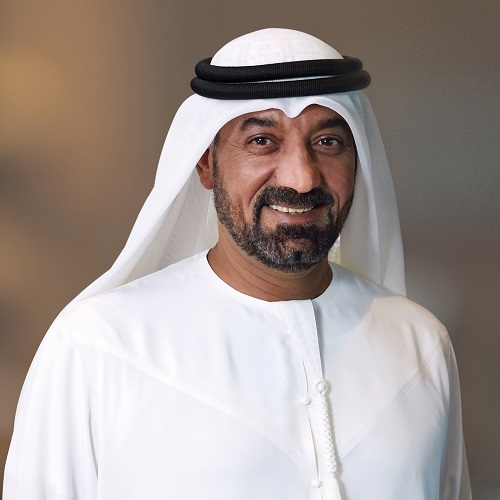
“The health and safety of our people and customers remained a key priority as the world navigated its second full year of the pandemic. Across Emirates and dnata, we responded to dynamic market conditions with agility, and introduced innovative products and services to meet our customers’ needs and provide them with the best possible experience.
“2021-22 was also a significant year as the UAE marked its 50th anniversary and hosted the world at Expo 2020 Dubai which generated increased global engagement and visitation to the UAE. The Emirates Group was proud to play our part in contributing to the Expo’s success and to the UAE’s jubilee events.”
In 2021-22, Emirates received a further capital injection of AED 3.5 billion (US$ 954 million) from our ultimate shareholder, the Government of Dubai, and the Group tapped on various industry support programmes and availed a total relief of nearly AED 0.8 billion in 2021-22.
As Emirates and dnata ramped up operations, employees previously on furlough or made redundant were recalled and rehired, and new recruitment drives were held to replenish the Group’s talent pool and boost its future capabilities. As a result, the Group’s total workforce increased by 13% to 85,219 employees, representing over 160 different nationalities.
In 2021-22, the Group collectively invested AED 7.9 billion (US$ 2.2 billion) in new aircraft and facilities, and the latest technologies to position the business for recovery and future growth. It also continued to progress its environmental strategy focussed on reducing carbon emissions, consuming resources responsibly, and conserving wildlife and habitats. During the year, the Group supported community, humanitarian and philanthropic initiatives in its various markets, as well as innovation incubators, and other programmes that nurture future solutions for industry growth.
Sheikh Ahmed said: “For the Emirates Group, 2021-22 was largely about recovery, after the toughest year in our Group’s history. It’s not just about restoring our capacity, but also augmenting our future capabilities as we rebuild. Our aim is to build back better and stronger, so that we can deliver even better experiences to our customers and offer more support to the communities we serve.
“We expect the Group to return to profitability in 2022-23, and are working hard to hit our targets, while keeping a close watch on headwinds such as high fuel prices, inflation, new COVID-19 variants, and political and economic uncertainty.
“Our steady investments in infrastructure, technology, people, and partnerships, will continue to give us the ability and advantage in delivering industry-leading products and value to our customers. As Dubai and the UAE move ahead with its strategy for the next 50 years and beyond, the Emirates Group is well positioned to play our role in contributing to economic growth, facilitating global engagement, and making a positive impact on people and communities.”
Emirates performance
Emirates’ total passenger and cargo capacity increased by 47% to 36.4 billion ATKMs in 2021-22, as the airline continued to reinstate passenger services across its network in line with the lifting of pandemic-related flight and travel restrictions.
From 120 destinations at the start of the financial year, to increased operations and capacity growth across over 140 destinations by 31 March 2022, Emirates was able to respond dynamically to serve customer demand wherever opportunities arose, thanks to the resilience of its people and business model. In July, the airline launched a new route to Miami, bringing its total passenger gateways in the US to 12.
To serve the strong rebound in travel demand, Emirates deployed its flagship A380 aircraft to even more cities during the year, bringing its A380 network to 29 destinations as of 31 March 2022.
Helping travellers access even more destinations, in 2021-22, Emirates reinforced its strategic partnerships with Qantas and flydubai, and expanded its interline and codeshare partnerships across Europe, the Americas, Africa and Asia including with: Aeromar, airBaltic, Airlink, Azul, Cemair, Garuda Indonesia, Gulf Air, Maldivian, South African Airways and TAP Air Portugal. Emirates also signed agreements and launched initiatives with tourism partners in various destinations to support travel and tourism recovery.
Emirates received its final five new A380 aircraft during the financial year, all equipped with its latest cabin interiors including Premium Economy seats. It also phased out 2 older aircraft comprising of 1 Boeing 777-300ER and 1 Freighter, leaving its total fleet count at 262 at the end of March. Emirates’ average fleet age remains at a youthful 8.2 years.
Emirates’ order book of 197 aircraft remains unchanged at this time. The airline is firmly committed to its long-standing strategy of operating a modern and efficient fleet, which underscores its “Fly Better” brand promise, as young aircraft are better for the environment, better for operations, and better for customers.
With significantly enhanced capacity deployment across most markets, Emirates’ total revenue for the financial year increased 91% to AED 59.2 billion (US$ 16.1 billion). Currency fluctuations this year impacted the airline’s profitability negatively by AED 348 million (US$ 95 million).
Total operating costs increased by 30% from last financial year. Cost of ownership (depreciation and amortisation) and fuel cost were the two biggest cost components for the airline in 2021-22, followed by employee cost. Fuel accounted for 23% of operating costs compared to 14% in 2020-21. The airline’s fuel bill more than doubled to AED 13.9 billion (US$ 3.8 billion) compared to the previous year, driven by a higher uplift of 66% in line with capacity expansion and a higher average fuel price which was up by 75%.
With the removal of pandemic-related flight and travel restrictions globally, the airline managed to substantially improve its financial results and reported a loss of AED 3.9 billion (US$ 1.1 billion) after last year’s AED 20.3 billion (US$ 5.5 billion) loss, and a loss margin of 6.6%, significantly improved compared to 65.6% last year.
Emirates carried 19.6 million passengers (up by 199%) in 2021-22, with seat capacity up by 150%. The airline reports a Passenger Seat Factor of 58.6%, compared with last year’s passenger seat factor of 44.3%; and a 10% decline in passenger yield to 35.1 fils (9.6 US cents) per Revenue Passenger Kilometre (RPKM), due to the change in route mix, fares and currency. Seat load factor and yield results cannot be compared against the previous year’s performance due to the ongoing unusual pandemic situation.
Emirates continued to invest in its products and services to deliver ever better customer experiences. This year, it announced a major retrofit programme to equip 120 of its 777 and A380 aircraft with its new Premium Economy seats and the latest cabin interiors.
It also accelerated digital initiatives to provide customers with smoother and safer journeys, from the quick and secure verification of COVID-19 travel documents, to more biometrics and contactless touchpoints at its Dubai hub.
Emirates continued to lead the industry with initiatives that provide customer assurance as travel restrictions eased and more people made travel plans. It extended its generous rebooking waivers and complimentary COVID-19 medical cover for all customers; and introduced new ways for Emirates Skywards members to earn Miles while extending the expiry of miles and tier status.
In this 2nd pandemic year, Emirates SkyCargo once again put in a stellar performance and contributed to 40% of the airline’s total transport revenue through its ability to respond rapidly to changing demand patterns in a distorted global marketplace.
Emirates SkyCargo maintained its edge in the global airfreight industry by focusing its customers, bringing innovative solutions to the market, and leveraging its fleet and network capabilities.
Rebuilding its network and capacity, the cargo division intelligently deployed its freighter fleet and belly-hold capacity, to meet customer needs. By 30 June 2021, it had restored services to over 90% of its pre-pandemic network.
During the year, Emirates SkyCargo continued to play an important role in getting COVID-19 vaccines and other medical supplies to communities around the world, and keeping trade lanes open for food supplies, e-commerce and other essential goods. In June 2021, it invested to scale up its pharma cool chain infrastructure in Dubai and by March 2022, Emirates SkyCargo had transported 1 billion doses of COVID-19 vaccines.
At the Dubai Airshow 2021, Emirates announced a US$ 1 billion investment to acquire 2 new Boeing 777 freighters and convert 4 existing 777-300ER aircraft into freighters.
With steady and strong air freight demand throughout the year, Emirates’ cargo division reported a new record revenue of AED 21.7 billion (US$ 5.9 billion), an increase of 27% over last year.
Freight yield per Freight Tonne Kilometre (FTKM) decreased by 3% as more cargo capacity returned to the global market, but generally remained at high levels compared to the pandemic marketplace due to steady and strong demand.
Tonnage carried increased by 14% to reach 2.1 million tonnes, due to the growth in available bellyhold capacity for the entire year with the reinstatement of more passenger services. At the end of 2021-22, Emirates’ SkyCargo’s total freighter fleet stood at 10 Boeing 777Fs.
Emirates’ hotels portfolio doubled revenue over last year to AED 602 million (US$ 164 million) as it re-opened more facilities to serve the upswing in tourism traffic and the gradual recovery of the meetings and conferences industry.
During the year, Emirates successfully restructured and extended various aircraft leases. The support from aviation lessors and financing partners during these challenging times reflect the financial community’s confidence in Emirates’ business model, and its mid to longer term prospects.
In addition to the AED 9.7 billion (US$ 2.6 billion) financing that was raised for aircraft and general corporate purposes in 2021-22, Emirates has already received committed offers to finance two aircraft deliveries due in 2022-23.
Emirates closed the financial year with solid cash assets of AED 20.9 billion (US$ 5.7 billion), 38% higher compared to 31 March 2021.
dnata performance
Recovery from the pandemic was felt across all dnata businesses, and in 2021-22 dnata returned to profitability with a profit of AED 110 million (US$ 30 million).
With growing flight and travel activity across the world, dnata’s total revenue increased by 54% to AED 8.6 billion (US$ 2.3 billion). dnata’s international business accounts for 62% of its revenue.
dnata continued to lay the foundations for future growth with investments in 2021-22 amounting to AED 370 million (US$ 101 million).
During the year, dnata invested significantly in its cargo handling capabilities. It expanded existing facilities in Sydney, Australia; opened a state-of-the-art cargo centre at London Heathrow airport; and announced a fully automated cargo centre to be built at ‘dnata Cargo City’ at Amsterdam Schiphol Airport. It also introduced an advanced “OneCargo” system which digitises and automates business and operational functions at its Iraq cargo operations, with plans to roll out the system across its global cargo network.
In 2021-22, dnata’s operating costs increased by 14% to AED 8.4 billion (US$ 2.3 billion), in line with expanded operations in its Airport Operations, Catering and Travel divisions across the world.
dnata’s cash balance improved by AED 208 million to AED 4.9 billion (US$ 1.3 billion). Net cash used in financing activities, primarily payments for loans and leases, amounted to AED 745 million (US$ 203 million), while the business utilised net cash of AED 246 million (US$ 67 million) in essential investing activities. The business saw a positive operating cash flow of AED 1.2 billion (US$ 332 million) in 2021-22, a reflection of the substantial improvements in revenues.
Revenue from dnata’s Airport Operations, including ground and cargo handling increased to AED 5.7 billion (US$ 1.6 billion).
The number of aircraft turns handled by dnata globally grew by 82% to 527,501, cargo handled increased by 10% to 3.0 million tonnes, reflecting the increase in flight activity across the globe as dnata’s customers re-started their operations wherever market restrictions on flights and travel were lifted.
During 2021-22, dnata expanded its global airport operations footprint into Africa. It signed a concession agreement with The Government of Zanzibar, where dnata will oversee the operations of the island’s newly-built international terminal with its partners, including Emirates Leisure Retail (ELR) who will partner with MMI as master concessionaire for all food and beverage, duty free and commercial outlets at the terminal.
marhaba, dnata’s airport hospitality brand, marked its 30th year of operations with the launch of its signature meet and greet services at four of Australia’s major airports, a new lounge in Zurich Airport, and a re-designed experience at its flagship lounge at Dubai International.
dnata’s Catering business accounted for AED 1.7 billion (US$ 455 million) of dnata’s revenue, up by 60%. The inflight catering business uplifted 39.9 million meals to airline customers, more than double the number of meals from last year, as its airline customers across the world restored their flight operations.
Significant customer wins during the year include BA CityFlyer, which led to dnata Catering launching operations at London City Airport; and the global inflight retail services contract for easyJet where dnata’s team of inflight retail experts will develop and manage bespoke onboard retail programmes and solutions for the airline.
It also saw significant activity in Australia. As the country re-opened its borders to international travellers, dnata worked closely with airline customers to support their resumption of flight operations. dnata Catering also continued to grow its retail food business with ready-made meals developed by Snapfresh Australia launched in Aldi and Costco stores nationwide.
Revenue from dnata’s Travel Services division has significantly grown by 434% to AED 694 million (US$ 189 million). The reported total transaction value (TTV) of travel services sold increased by 912% to AED 2.3 billion (US$ 632 million), a dramatic reversal from last year. These increases reflect last year’s abnormal situation where the business saw high levels of COVID-19-related booking cancellations.
During the year, dnata introduced several new products and services in the UAE, capitalising on its market expertise, Dubai’s open borders for international travel, the city’s hosting of Expo 2020 as well as other major conferences and sporting events.
For its corporate travel customers, dnata partnered with ExpensePoint to offer an advanced expense reporting solution; renewed a partnership with one of the world’s largest VAT reclaim specialists that will bring additional saving opportunities for duty travel claims; and implemented hybrid meetings and events solutions to provide customers a sustainable alternative to hosting corporate engagements during lockdown.
In the UK, dnata’s Travel Republic brand introduced a new ‘Secure Trust Account’ for package holiday customers that guarantees prompt refunds for customers who have to cancel their flight-inclusive package holiday, as funds are kept secure in a separate account.
dnata also launched its Gold Medal brand in the Kingdom of Saudi Arabia this year, offering its extensive portfolio of travel products to independent travel agents.
The full 2021-22 Annual Report of the Emirates Group – comprising Emirates, dnata and their subsidiaries – is available at: www.theemiratesgroup.com/annualreport



